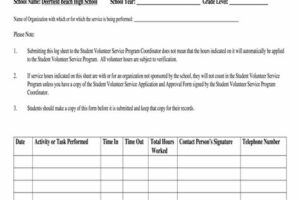Table of Contents
Looking to make a difference in people’s lives? Join our Volunteer Drug and Alcohol Counsellors Training Program. Gain the skills and knowledge needed to support individuals struggling with substance abuse. Become a certified counsellor and contribute to the well-being of your community. Sign up today!
The Volunteer Drug and Alcohol Counsellors Training Program is a transformative opportunity for individuals looking to make a positive impact in their community. Whether you are passionate about helping others overcome addiction or seeking personal growth, this program offers a comprehensive curriculum designed to equip volunteers with the necessary skills and knowledge. From learning evidence-based counseling techniques to understanding the complexities of substance abuse, our training program ensures that volunteers are prepared to offer professional support to those in need. With a commitment to fostering empathy, compassion, and resilience, this program empowers volunteers to make a lasting difference in the lives of individuals struggling with drug and alcohol addiction.
Introduction
The Volunteer Drug and Alcohol Counsellors Training Program is a comprehensive initiative aimed at equipping individuals with the necessary skills and knowledge to support those struggling with substance abuse. This program provides volunteers with valuable training that enables them to become proficient in helping individuals navigate the challenges associated with drug and alcohol addiction.
Why Volunteer?
Volunteering for a drug and alcohol counseling program can be an incredibly rewarding experience. By devoting your time and effort to this cause, you have the opportunity to positively impact someone’s life and potentially help them on their journey towards recovery. Additionally, volunteering allows you to gain valuable skills, broaden your perspective, and contribute to the betterment of your community.
Program Overview
The Volunteer Drug and Alcohol Counsellors Training Program offers a comprehensive curriculum that covers various aspects of addiction counseling. Participants receive training on topics such as understanding addiction, effective communication techniques, crisis intervention, relapse prevention, and ethical considerations. The program ensures that volunteers are well-prepared to provide support and guidance to individuals struggling with substance abuse.
Training Methodology
The training program utilizes a combination of theoretical knowledge and practical skills development. Volunteers engage in interactive sessions, role-plays, case studies, and group discussions to enhance their understanding of addiction counseling. Trainers with extensive experience in the field facilitate the sessions, providing participants with valuable insights and guidance.
Supportive Environment
The Volunteer Drug and Alcohol Counsellors Training Program fosters a supportive environment where participants can learn, grow, and share their experiences. Volunteers have the opportunity to connect with like-minded individuals who are passionate about helping others overcome addiction. This sense of community encourages collaboration, empathy, and the exchange of ideas.
Professionalism and Ethics
One of the core aspects of the training program is instilling a strong sense of professionalism and ethics in all volunteers. Participants are educated on the importance of maintaining confidentiality, respecting boundaries, and adhering to ethical guidelines. These principles ensure that volunteers provide a safe and secure environment for individuals seeking help.
Continued Education
The Volunteer Drug and Alcohol Counsellors Training Program is committed to providing ongoing education and support for its volunteers. Regular workshops, seminars, and webinars are conducted to keep volunteers updated on the latest research, techniques, and best practices in the field of addiction counseling. This continuous learning ensures that volunteers are equipped with the most effective tools to assist those in need.
Impact on Volunteers
Participating in the Volunteer Drug and Alcohol Counsellors Training Program can have a profound impact on volunteers themselves. By engaging in this program, volunteers develop essential skills such as active listening, empathy, and crisis management, which can be applied not only in their counseling role but also in various aspects of their personal and professional lives.
Making a Difference
Volunteers who complete the training program become an integral part of a broader network of individuals dedicated to combating the challenges of addiction. By volunteering their time and expertise, they contribute to creating a supportive and understanding society that prioritizes the well-being and recovery of those affected by drug and alcohol abuse.
Conclusion
The Volunteer Drug and Alcohol Counsellors Training Program plays a crucial role in equipping individuals with the necessary skills to support those battling addiction. By providing comprehensive training, fostering a supportive environment, and promoting professionalism, this program empowers volunteers to make a positive difference in the lives of individuals struggling with substance abuse.
Program Overview:
The Volunteer Drug and Alcohol Counsellors Training Program is a comprehensive program designed to equip individuals with the necessary skills and knowledge to provide support and assistance to those grappling with substance abuse issues. By participating in this program, volunteers will be prepared to make a positive impact on individuals and communities affected by drug and alcohol dependency.
Course Curriculum:
The course curriculum for the Volunteer Drug and Alcohol Counsellors Training Program covers a wide range of relevant subjects, including the psychology of addiction, counseling techniques, and legal and ethical considerations. Participants will also gain valuable insights into the role of support networks, relapse prevention, and community resources in the recovery process. The curriculum has been meticulously developed by industry experts and professionals working in the field of substance abuse counseling.
Practical Skills Development:
This training program places a strong emphasis on practical skills development to ensure that volunteers are capable of providing effective support to individuals dealing with substance abuse disorders. Through role-playing exercises, case studies, and supervised practice sessions, participants will gain hands-on experience in conducting assessments, developing treatment plans, and implementing evidence-based intervention strategies. By honing these practical skills, volunteers will be well-prepared to address the unique needs and challenges faced by individuals seeking help for drug and alcohol addiction.
Training Delivery Format:
The Volunteer Drug and Alcohol Counsellors Training Program offers a flexible delivery format to accommodate the needs of participants. While a portion of the program may be offered in a traditional classroom setting, there are also options for online modules and self-paced learning. This allows individuals with diverse schedules and commitments to benefit from the training program, making it accessible to a wide range of potential volunteers.
Certification and Accreditation:
Upon successful completion of the program, participants will receive a certification that acknowledges their commitment to professional development and their competency as a drug and alcohol counsellor. This certification provides volunteers with a recognized credential that can enhance their employability, credibility, and chances of making a greater impact in the field of addiction counseling. Additionally, the training program may also be accredited by reputable professional organizations, further validating its quality and adherence to industry standards.
Ongoing Support and Supervision:
The Volunteer Drug and Alcohol Counsellors Training Program does not simply end with the completion of the course. To ensure the success and well-being of volunteers, ongoing support and supervision are provided. Regular check-ins, mentorship opportunities, and opportunities for continuing education and professional development are offered to further enhance the knowledge and skills of volunteers, allowing them to continuously improve their practice and stay up-to-date with best practices in the addiction counseling field.
Community Engagement:
In addition to equipping volunteers with necessary skills and knowledge, the training program also emphasizes the importance of community engagement. Participants are encouraged to actively participate in community outreach initiatives, raise awareness about substance abuse issues, and contribute to the development of prevention programs. By engaging with the community, volunteers play a crucial role in combating the stigma surrounding addiction and in promoting a society that supports individuals in their journey towards recovery.
Impact and Outcomes:
The Volunteer Drug and Alcohol Counsellors Training Program aims to create a positive impact by empowering volunteers to support individuals struggling with drug and alcohol addiction. By equipping volunteers with comprehensive training and ongoing support, the program aims to improve access to quality counseling services, reduce relapse rates, and contribute to the overall well-being and recovery of individuals and communities affected by substance abuse disorders. Through their dedication and commitment, volunteers have the potential to make a significant difference in the lives of those affected by addiction.
In my professional opinion, the Volunteer Drug and Alcohol Counsellors Training Program is an essential initiative that plays a crucial role in addressing the complex issues related to substance abuse. This program provides volunteers with the necessary knowledge, skills, and support to effectively assist individuals struggling with drug and alcohol addiction.
Here are some key points highlighting the significance of this training program:
Comprehensive Curriculum:
The program offers a comprehensive curriculum that covers various aspects of drug and alcohol addiction, including understanding addiction psychology, recognizing signs of substance abuse, and implementing evidence-based treatment strategies. This ensures that volunteers receive a well-rounded education that prepares them to handle diverse situations with competence and professionalism.
Specialized Training:
The training program focuses specifically on drug and alcohol counselling, providing volunteers with specialized expertise in this area. By tailoring the curriculum to address the unique challenges associated with substance abuse, volunteers can develop a deep understanding of addiction-related issues and gain the skills needed to effectively support individuals on their path to recovery.
Practical Skill Development:
Volunteers participating in this program engage in hands-on exercises and role-plays, allowing them to practice important counselling techniques in a safe and controlled environment. This practical approach enhances their ability to establish rapport with clients, conduct effective assessments, and deliver appropriate interventions. It also helps volunteers build confidence in their abilities, ensuring they can provide high-quality support to individuals seeking help for drug and alcohol addiction.
Supervision and Mentoring:
The Volunteer Drug and Alcohol Counsellors Training Program includes ongoing supervision and mentoring, which is vital for volunteers to continue honing their skills and receiving guidance throughout their counselling journey. This support system ensures that volunteers have access to experienced professionals who can provide them with feedback, answer their questions, and address any challenges they may encounter while working with clients.
Impactful Community Contribution:
By equipping volunteers with the necessary education and skills, this training program enables them to make a significant positive impact on the community. Volunteers can offer support, guidance, and hope to individuals battling drug and alcohol addiction, helping them break free from the destructive cycle of substance abuse and work towards a healthier and more fulfilling life.
In conclusion, the Volunteer Drug and Alcohol Counsellors Training Program is an invaluable resource that empowers volunteers to become competent and compassionate counsellors in the field of substance abuse. By investing in this program, we can ensure that individuals struggling with drug and alcohol addiction receive the professional help they need to overcome their challenges and rebuild their lives.
Thank you for taking the time to visit our blog and learn more about the Volunteer Drug and Alcohol Counsellors Training Program. We understand that drug and alcohol addiction is a complex issue that affects individuals, families, and communities worldwide. Our program aims to address this problem by providing comprehensive training to volunteers who are passionate about helping others overcome their struggles with substance abuse.
First and foremost, we would like to emphasize the importance of professional training for those interested in becoming drug and alcohol counsellors. Our program offers a unique opportunity for individuals to gain the knowledge, skills, and practical experience necessary to make a positive impact in the lives of those battling addiction. With a strong focus on evidence-based practices and current research, our training program equips volunteers with the tools they need to effectively support individuals on their journey towards recovery.
Furthermore, our program fosters a supportive and inclusive learning environment, where volunteers can connect with like-minded individuals and professionals in the field. Through interactive workshops, group discussions, and case studies, participants have the opportunity to enhance their communication skills, develop empathy, and build their confidence as counsellors. We firmly believe that by establishing a network of trained volunteers, we can strengthen our collective efforts to combat drug and alcohol addiction.
In conclusion, we invite you to consider joining our Volunteer Drug and Alcohol Counsellors Training Program. Whether you are a student pursuing a career in counseling, a healthcare professional looking to expand your expertise, or simply someone who wants to make a difference in the lives of others, our program offers a valuable platform for personal growth and professional development. By becoming a trained volunteer, you will contribute to the ongoing fight against addiction and help individuals reclaim their lives. Together, let us work towards a society free from the grip of drug and alcohol dependency.
Once again, thank you for visiting our blog and showing interest in our Volunteer Drug and Alcohol Counsellors Training Program. We hope to welcome you as a part of our dedicated team of volunteers soon. If you have any further questions or would like to get involved, please do not hesitate to reach out to us.
.
1. What is a Volunteer Drug and Alcohol Counsellors Training Program?
A Volunteer Drug and Alcohol Counsellors Training Program is a specialized training program designed to equip individuals with the necessary skills and knowledge to provide support and guidance to individuals struggling with drug and alcohol addiction.
2. Why should I consider becoming a volunteer drug and alcohol counsellor?
Becoming a volunteer drug and alcohol counsellor allows you to make a positive impact on the lives of individuals struggling with addiction. It provides an opportunity to help others overcome their challenges, gain personal satisfaction, and contribute to the well-being of your community.
3. What are the requirements to enroll in a Volunteer Drug and Alcohol Counsellors Training Program?
The specific requirements may vary depending on the program, but generally, you need to be at least 18 years old, have a high school diploma or equivalent, possess good communication and listening skills, and show a genuine interest in helping individuals with addiction issues.
4. How long does the training program typically last?
The duration of a Volunteer Drug and Alcohol Counsellors Training Program can vary, but it usually ranges from several weeks to a few months. The length of the program depends on the depth of the curriculum and the amount of practical training provided.
5. What topics are covered in a Volunteer Drug and Alcohol Counsellors Training Program?
A comprehensive training program typically covers topics such as the biology and psychology of addiction, counseling techniques, assessment and treatment planning, relapse prevention, ethical considerations, and cultural sensitivity training.
6. Can I practice as a professional drug and alcohol counsellor after completing the training program?
A Volunteer Drug and Alcohol Counsellors Training Program provides valuable knowledge and skills, but it does not typically qualify you to practice as a professional counsellor. However, it serves as a foundation for further education and training if you decide to pursue a career in the field.
7. Are there any volunteer opportunities available after completing the training program?
Yes, many organizations offer volunteer opportunities for individuals who have completed a Volunteer Drug and Alcohol Counsellors Training Program. These opportunities allow you to apply your newly acquired skills and make a difference in the lives of those struggling with addiction.
8. Can I receive any certifications or credentials upon completing the training program?
The availability of certifications or credentials depends on the specific training program you choose. Some programs may offer certificates of completion, while others may provide recognition from professional organizations in the field of addiction counseling.
9. How can I find a reputable Volunteer Drug and Alcohol Counsellors Training Program?
You can start by researching local organizations or community centers that offer training programs in addiction counseling. Additionally, you can reach out to professional associations, such as the National Association for Addiction Professionals (NAADAC), for recommendations and resources.
10. Is there any financial assistance available for enrolling in a Volunteer Drug and Alcohol Counsellors Training Program?
Financial assistance options vary depending on the program and location. Some organizations may offer scholarships or grants to individuals who demonstrate a genuine commitment to volunteering and helping those in need. It is advisable to inquire directly with the training program or relevant organizations for potential financial support.






